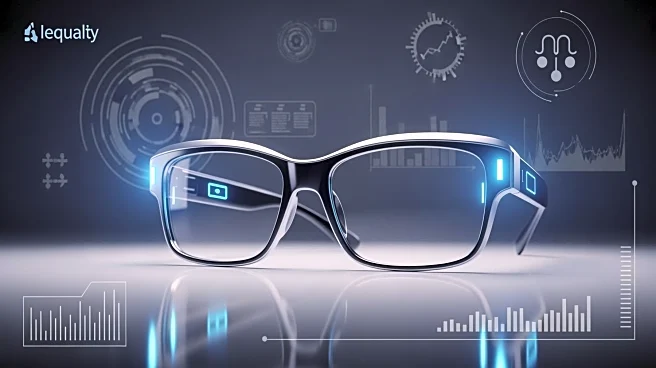What's Happening?
During a recent earnings call, Mark Zuckerberg, CEO of Meta, emphasized the future importance of AI-integrated glasses, suggesting that individuals without such technology may face a significant cognitive
disadvantage. This statement has reignited discussions about wearable AI technology and its implications for social inequality. The comment comes in the wake of Meta's Reality Labs reporting a $4.53 billion operating loss for Q2, alongside new product launches from major tech companies. Zuckerberg's remarks have shifted the conversation from hardware to broader issues of access and inequality, raising questions about how employers and regulators might respond to the potential normalization of AI eyewear in the workplace.
Why It's Important?
The introduction of AI glasses as a potential workplace requirement could have significant implications for privacy, employment practices, and social equity. If AI glasses become a standard tool for productivity, it may create new divides between those who can afford or are willing to use such technology and those who cannot. This scenario poses ethical questions about surveillance and coercion in employment, as well as the potential for increased inequality. Investors see a new platform opportunity, while privacy advocates warn of surveillance risks. The debate challenges regulators to balance consumer privacy with market-driven adoption, impacting tech industry dynamics and labor policies.
What's Next?
As the conversation around AI glasses continues, companies may face pressure to clarify their policies regarding wearable technology. Unions and privacy regulators are likely to demand limits on mandatory use of AI devices, while businesses might explore opt-out options or issue guidance on their use. The public and policy response will shape whether AI glasses become a workplace norm or face significant resistance. The ongoing debate will influence future tech product development and regulatory frameworks, potentially affecting employment standards and consumer rights.
Beyond the Headlines
The ethical implications of AI glasses extend beyond immediate workplace concerns, touching on broader societal issues such as digital divide and access to technology. The normalization of AI wearables could lead to long-term shifts in how individuals interact with technology and each other, potentially altering social dynamics and expectations. The debate also highlights the tension between technological advancement and ethical considerations, prompting discussions on the role of technology in shaping future societal norms.











